
In the wake of an earnings miss in its most recent fiscal quarter, Bed Bath & Beyond Inc (NASDAQ: BBBY) recently announced leadership changes and is reportedly considering a sale of its Buybuy Baby subsidiary. Consumer transaction data reveals that for BBBY’s namesake retail chain Bed Bath & Beyond, sales in June 2022 were about half of what they were three years ago. In addition, an analysis of sales by purchase channel found that in-store shopping continues to dominate Bed Bath & Beyond’s sales, but ecommerce customers have a higher average monthly spend at the home goods retailer.
Bed Bath & Beyond sales have been decreasing throughout the pandemic
Prior to Bed Bath & Beyond Inc’s (NASDAQ: BBBY) earnings miss, sales for its flagship chain had gradually declined over the past three years. Consumer transaction data shows that in June 2022, sales at Bed Bath & Beyond (excluding other BBBY subsidiaries) were 31 percent lower year-over-year and 45 percent lower than in June 2019. A shrinking retail footprint is a likely factor contributing to the sales decline. In 2020, Bed Bath & Beyond announced that it would close about 200 stores within a two-year period.
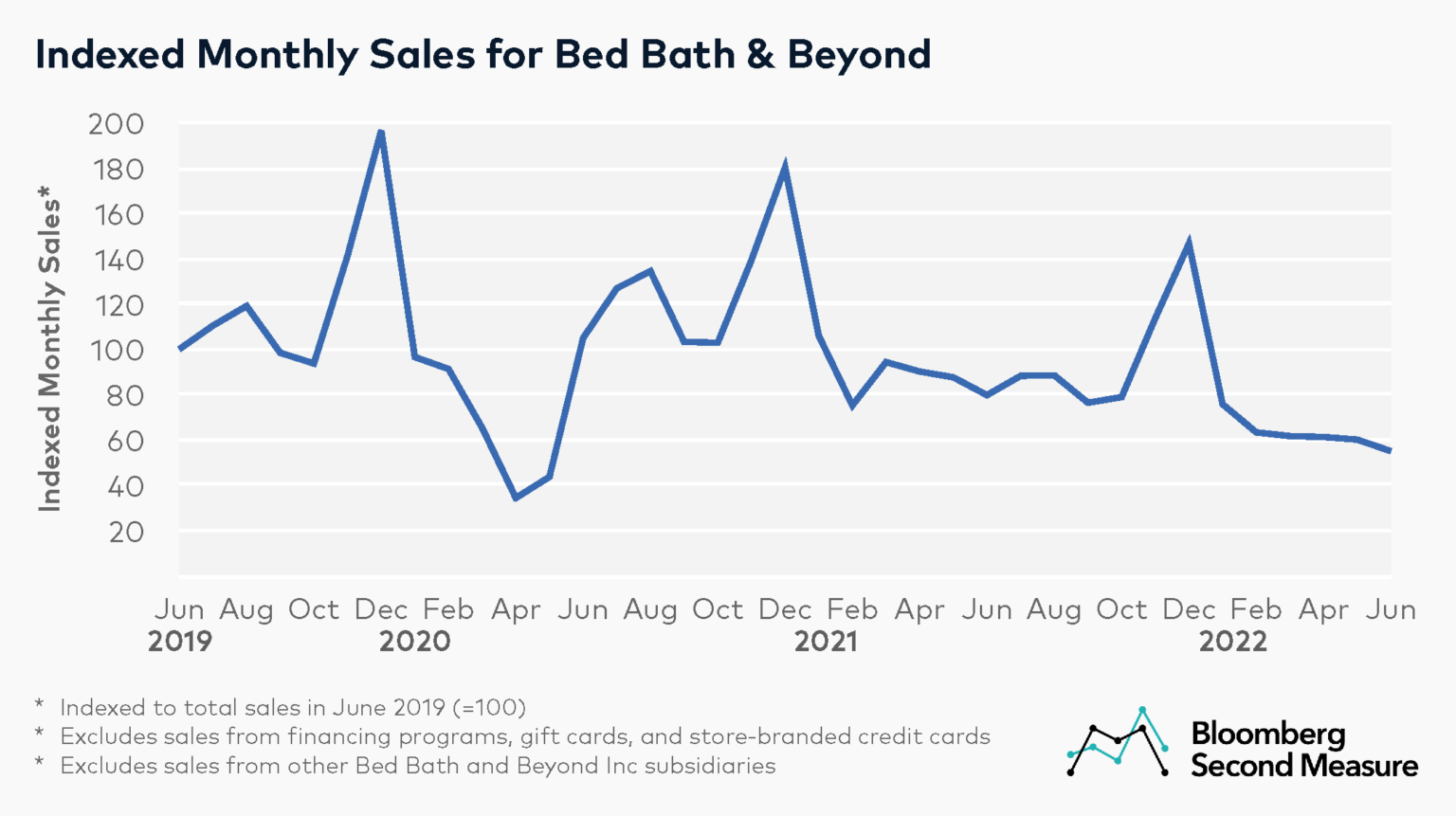
Bed Bath & Beyond has a similar sales pattern every year, with notable upticks over the summer (corresponding with back-to-school shopping) and then again during the holidays. Looking at the most recent holiday season, Bed Bath & Beyond sales in December 2021 were 19 percent lower than the year before and 25 percent lower than the same month in 2019.
Most Bed Bath & Beyond sales still come from stores, but online customers spend more on average
Most of Bed Bath & Beyond’s sales come from its chain of brick-and-mortar locations, but ecommerce sales as a percentage of total sales has increased compared to pre-pandemic levels. In June 2022, 27 percent of sales from Bed Bath & Beyond were from the online channel. By contrast, only 15 percent of sales in June 2019 took place online. As was the case with many other retailers, most Bed Bath & Beyond sales in the early months of the pandemic were online-based because stores were temporarily closed. Over the past few years, Bed Bath & Beyond has also partnered with third-party platforms like Instacart, Shipt, and DoorDash for same-day delivery of its products.
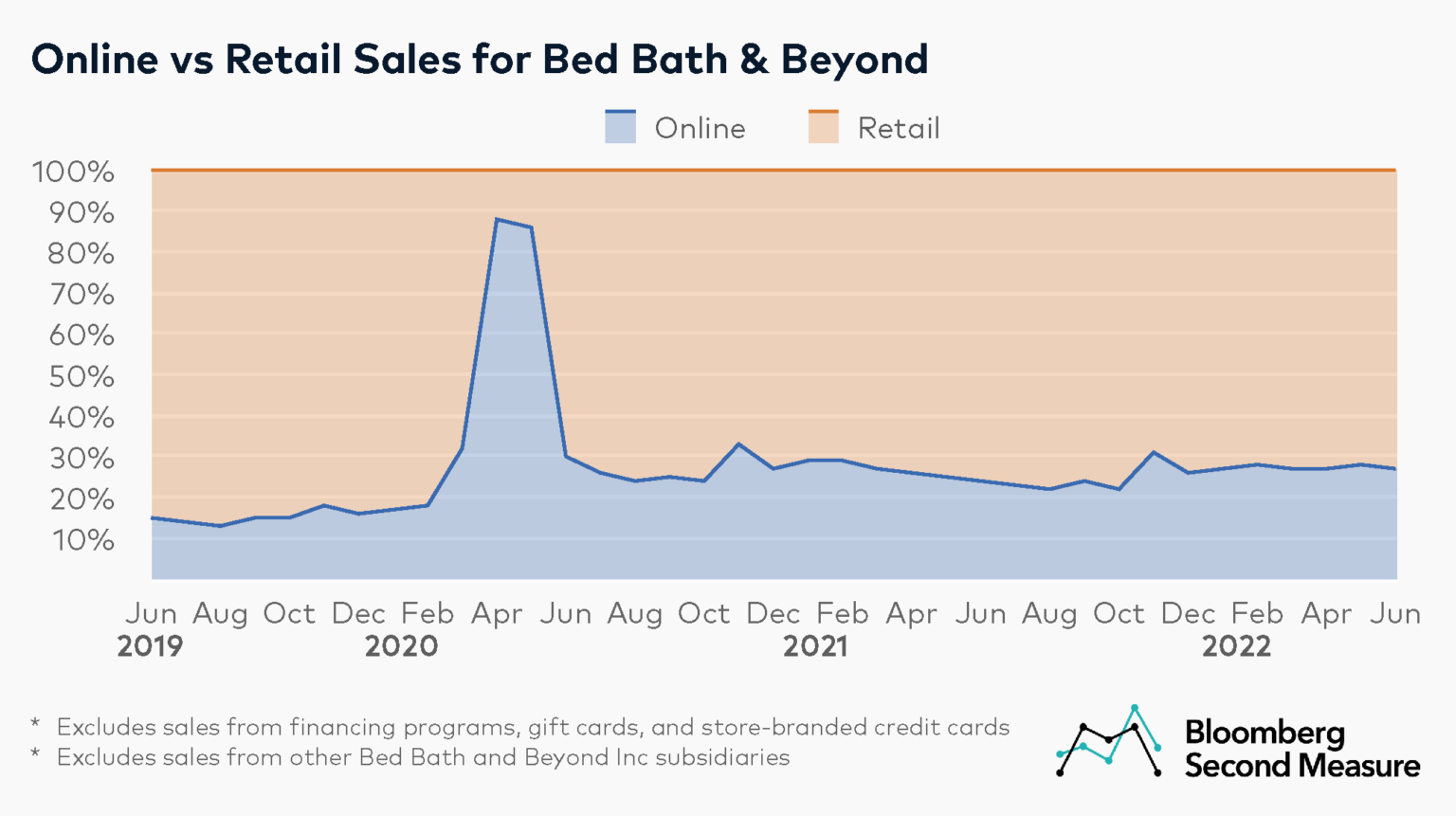
Even though ecommerce accounts for a lower percentage of overall sales when compared to retail, Bed Bath & Beyond customers who shop online have a higher average monthly spend compared to customers who shop in stores. In June 2022, online customers spent a monthly average of $116, while retail customers spent an average of $80.
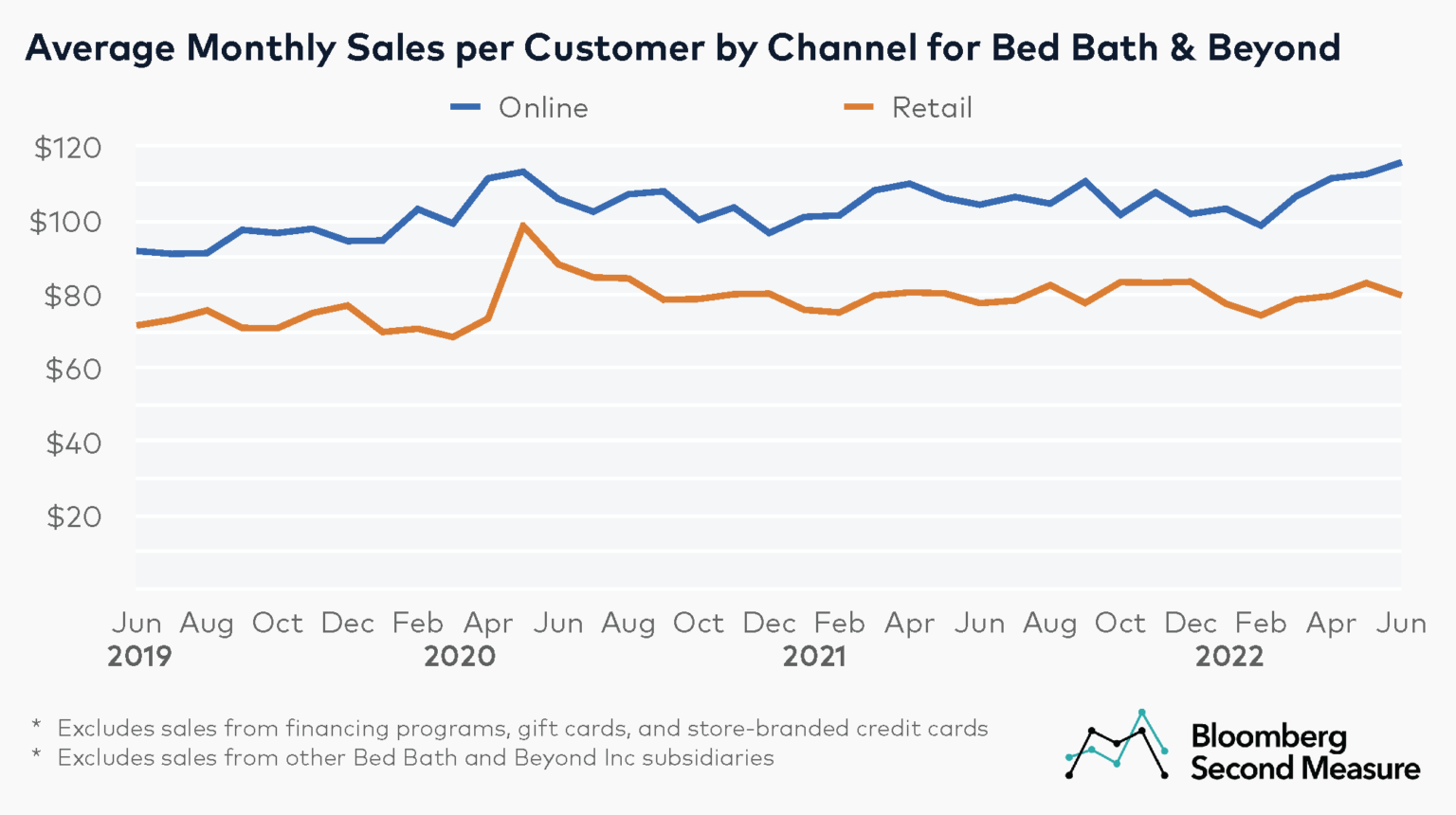
For both channels, the average sales per customer has increased compared to pre-pandemic levels. In June 2022, the average sales per customer for retail sales was 11 percent higher than the same month in 2019, compared to an increase of 26 percent for the online channel during the same time period.
Bed Bath & Beyond is experimenting with new ways to attract customers
In recent months, Bed Bath & Beyond has been introducing new incentives, promotions, and products. Earlier this year, Bed Bath & Beyond introduced a new private label brand called Everhome, joining eight other private label brands launched since 2020. In June 2022, Bed Bath & Beyond’s parent company launched a new loyalty program called Welcome Rewards and a Buy Now, Pay Later (BNPL) option, which can be used at any of its subsidiaries. In early July, Bed Bath & Beyond also hosted a sale to compete with Amazon Prime Day.
Will BBBY sell Buybuy Baby?
At the behest of activist investors, Bed Bath & Beyond’s parent company is reportedly exploring a sale of its Buybuy Baby unit and has already begun fielding interest from prospective buyers. Over the past few years, BBBY has sold off several of its other subsidiaries. For example, BBBY sold Personalization Mall to 1-800-Flowers (NASDAQ: FLWS) and Christmas Tree Shops to Handil Holdings in 2020, followed by the sale of its Cost Plus World Market brand in early 2021.
To learn more about the data behind this article and what Second Measure has to offer, visit https://secondmeasure.com/.







Sign up to receive our stories in your inbox.
Data is changing the speed of business. Investors, Corporations, and Governments are buying new, differentiated data to gain visibility make better decisions. Don't fall behind. Let us help.
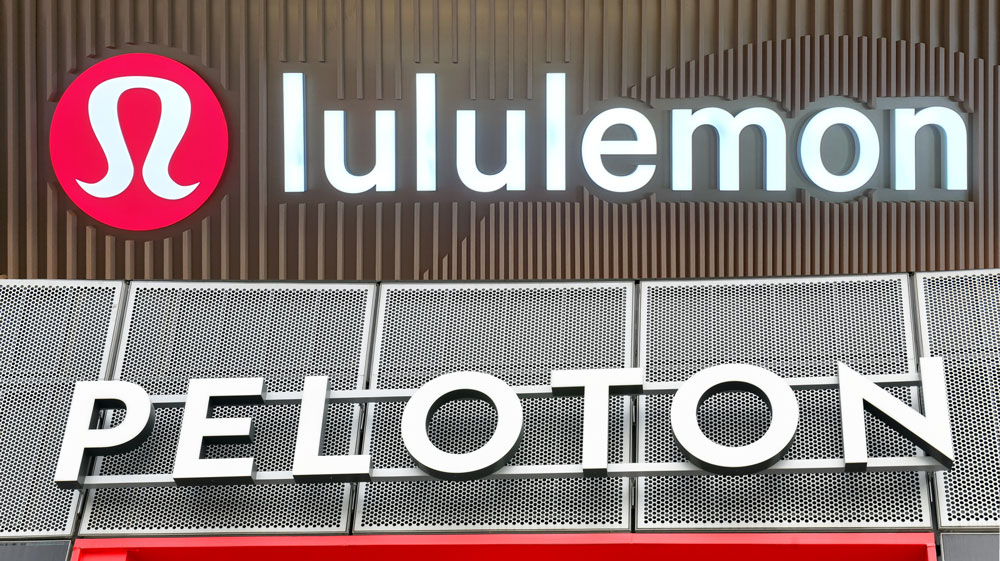



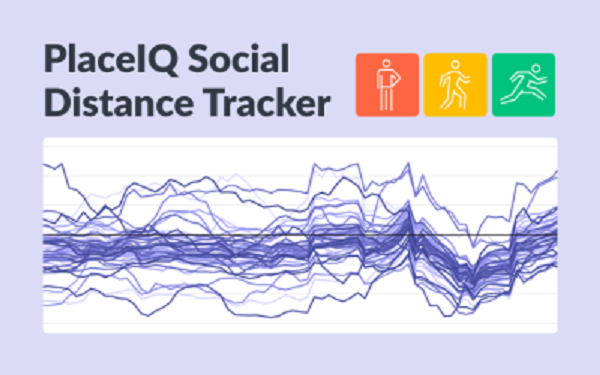
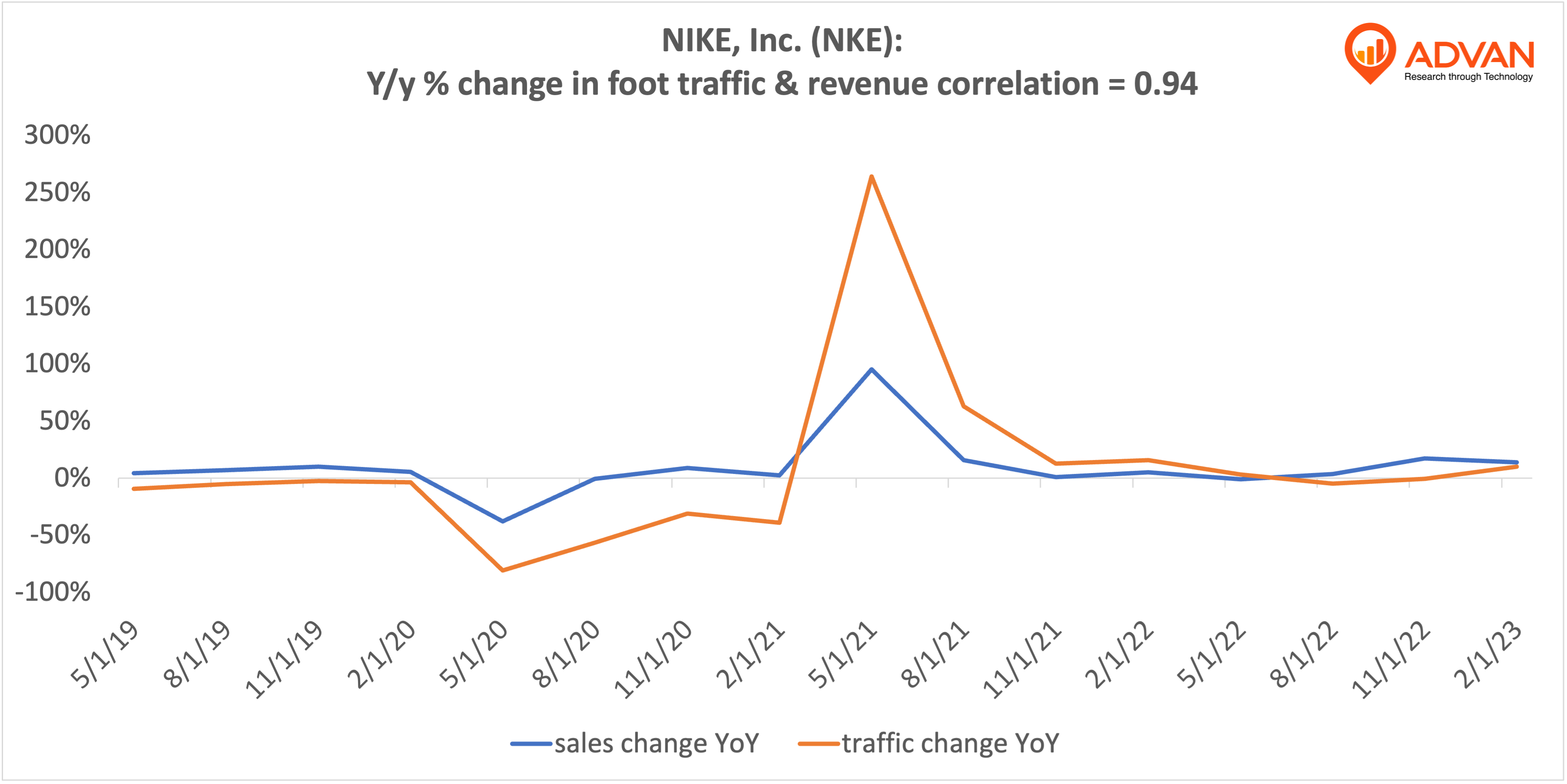







Sign up to receive our stories in your inbox.
Data is changing the speed of business. Investors, Corporations, and Governments are buying new, differentiated data to gain visibility make better decisions. Don't fall behind. Let us help.





